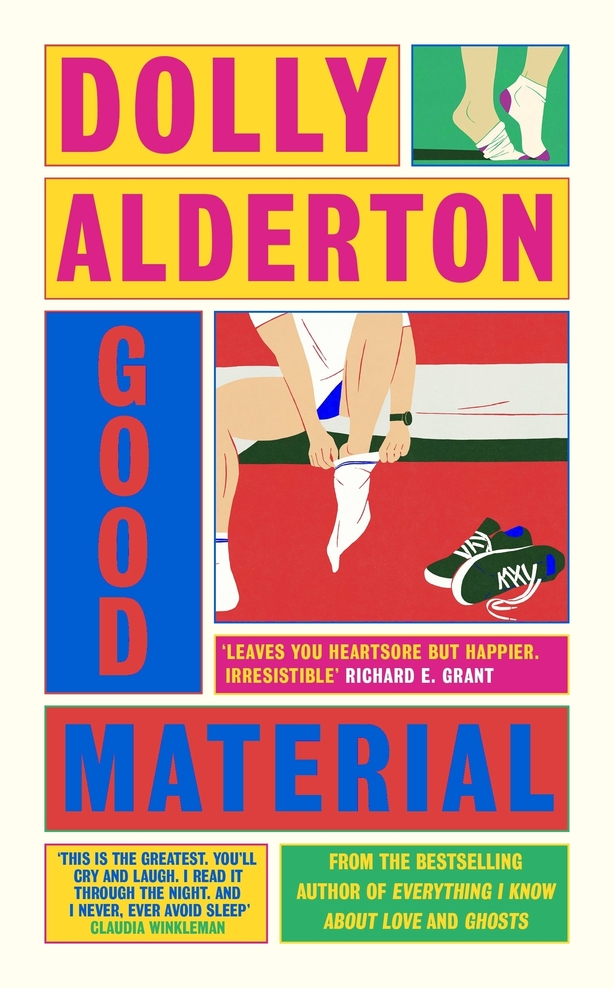If there's a silver lining to a breakup, it is the free pass you get to pick indulgently over its bones.
This, we are led to believe, is Dolly Alderton’s territory. The writer, who progressed from story producer on Made in Chelsea to dating columnist and agony aunt for The Sunday Times, has mined her anthropological observations on the rules of courtship for a slew of pithy and earnest books, from works of fiction (Ghosts) to non-fiction (Everything I Know About Love).
With her latest work, Alderton returns to fiction. We meet Andy, a middling comedian fully aware of his mediocracy, hopping from job to job and recently unceremoniously dumped by his girlfriend of almost four years, Jen.
Andy begins a haphazard journey through singledom, enduring everything from calling up old girlfriends to a brief stint living on a houseboat. Through it all, he’s caught in the vicious cycle of rereading messages to Jen, analysing where things went wrong and mourning the loss of their future together.
Caught in the undertow of heartbreak, Andy reckons with the inconveniences of life as a single 30-year-old. "How could I have let myself believe, even for a second, that single thirty-something life would be an endless buffet of opportunities, when I know it is, at best, small plates", he thinks, in a distinctly cosmopolitan way that both sums up Alderton’s voice and hints at where this potentially charming book goes wrong.
The picture Alderton paints of single life in your 30s is a hodge podge of the scheduled nights out with old friends and evenings spent drinking "tinnies". Her protagonist is a whiny, insecure, overly sentimental bloke who is more than a little annoying, and in this Alderton has captured a certain kind of man at a certain age.
Sadly, this book veers too often into the cartoonishly overblown and cliched for it to feel like a true examination of dating in your 30s.
Take for instance the saleswoman Andy speaks to who laments that she got a thigh master from her husband for Valentine’s Day – in 2019. Worse is Andy’s stint with a personal trainer who spits out cliched aphorisms that simply aren’t shrewd enough to read as satire.
Watch: Dolly Alderton answers questions about heartbreak, via The Sunday Times
Still, there are moments of brilliance. An unexpected one is the protracted standoff between Andy and a storage unit employee, which unfolds in an expertly paced ping-pong match of passive aggression.
When Alderton settles enough to actually reflect on heartbreak, she’s insightful and sincere. Her strongest moments are when her wisdom on the "hidden miniature break-ups within a big break-up" leak through, such as when Andy realises it’s not just his relationship that’s ruptured, but the bond they shared with Jane and Avi, their married best friends: "I’ve been so busy mourning Jen, I’d forgotten I’d have to mourn us four too."
One of the more frustrating parts of the book is that there is little emotional depth to Andy. His actions are largely representative of what he’s thinking, which is clearly a choice by Alderton, but it means there’s no puzzling out required of the reader. This is usually the most enjoyable part of any breakup: the mulling over and analysing with friends or family, no matter how fruitless.
As anyone from Emily Bronte to Emily Henry can attest to, there is endless road to run in romance and heartbreak. The irony here is that, for a writer with as storied and readily readable a background as Alderton’s, once she moves from real-life column to fiction, she doesn’t quite know how to plough new territory.
The novel doesn’t truly come into its own until the final section when the narrative shifts to Jen’s perspective. Here, with her pained observations about marriage, dating, family trauma and the pressure on women to become mothers, is when Dolly shines.
Jen fills in the gaps in what this novel is supposed to tell us about dating in your 30s. The pressure to have children, the manifold ways that the success of such a decision would rely on her time, money, body, the resentment that grows when pressured to "hand in their homework to mother nature before the famous deadline".
Its clear-eyed message, delivered with sincerity and truth, almost makes it worth the wait, but it’s still not good enough of a punchline to endure the book-long set-up, no matter how many times Alderton tells us he’s a terrible comedian.

Good Material is published by Fig Tree


